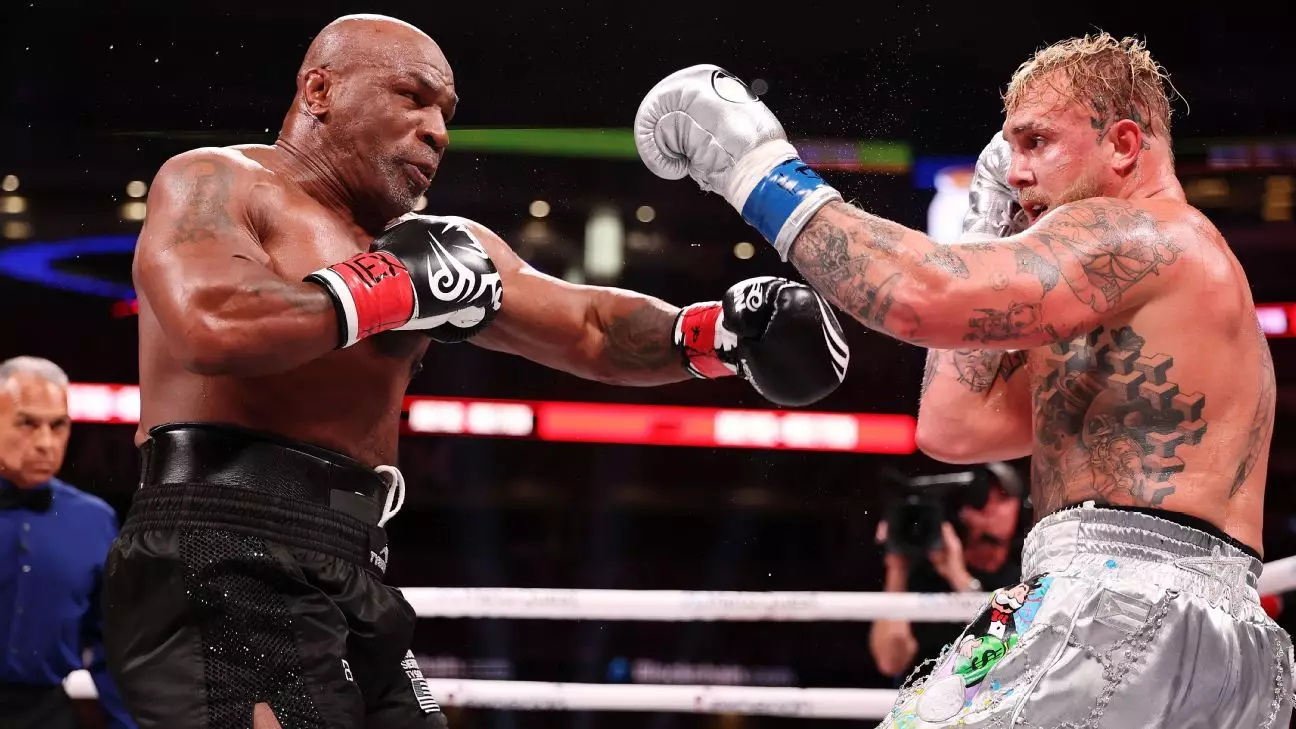In recent years, Jake Paul has emerged as a controversial yet undeniably significant figure in the boxing world. While debates might swirl around whether he is a “true” boxer, one cannot ignore that at the age of 27, he has become the biggest draw in the sport. His recent fight against Mike Tyson at AT&T Stadium in Arlington, Texas, is a testament to Paul’s commercial appeal and the shifting dynamics of boxing as entertainment rather than pure sport.
The matchup between Paul and Tyson didn’t just capture the attention of boxing enthusiasts; it shattered records. The event saw more than 72,300 attendees, generating an astonishing total revenue of $18,117,072. This makes it the most lucrative boxing match outside Las Vegas in U.S. history, according to a statement from Most Valuable Promotions, the company co-founded by Paul. The historical significance of the event is further underscored by the co-main event featuring Katie Taylor and Amanda Serrano, which itself captivated audiences with a closely contested and controversial split decision.
Moreover, the success of this event extends beyond the boxing ring. The financial surge affected Netflix’s stock positively, showcasing the crossover appeal of such high-profile boxing matches. This unique mixture of combat sports and entertainment has redefined expectations for what a boxing event can achieve both financially and in terms of viewership.
Jake Paul’s promotional approach is particularly noteworthy because it has opened the door for new broadcasting platforms such as Netflix to enter the live sports arena. Despite experiencing some streaming issues during the event, approximately 60 million households logged in for what was Netflix’s debut in live sports. This not only highlights Paul’s drawing power but also signals a broader trend where streaming services are becoming major players in the sports broadcasting industry.
Additionally, this newfound relationship between boxing events and streaming platforms signals a strategic pivot. It highlights the importance of accessibility in modern sports consumption. With the upcoming announcements from Netflix featuring high-profile events, including a halftime performance by Beyoncé, the streaming giant is clearly keen on continuing to tap into the sports market.
Jake Paul’s influence in the boxing world is emblematic of broader changes within the sport. By drawing in a diverse audience—both traditional boxing fans and younger demographics coming from online platforms—he’s not only revitalizing interest in boxing but also altering the landscape of how these events are promoted and consumed. Whether or not one agrees with his credentials as a “real” boxer, there’s no doubt that Paul’s arrival on the scene has sparked a transformation that has far-reaching implications for the future of boxing and combat sports in general. As the industry adapts to include streaming platforms and significant crossover events, it remains to be seen how this will shape the direction of boxing in the coming years.


Leave a Reply